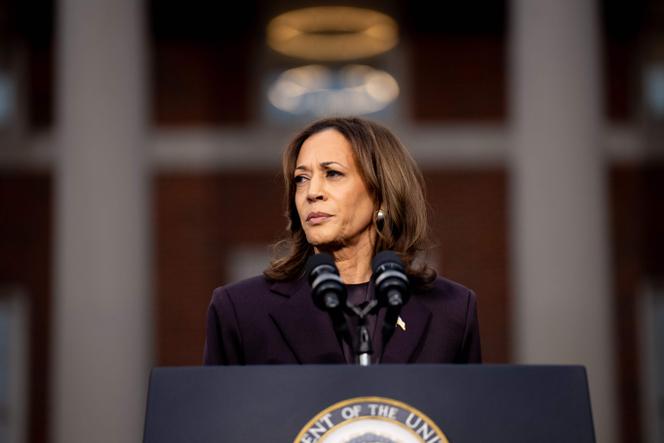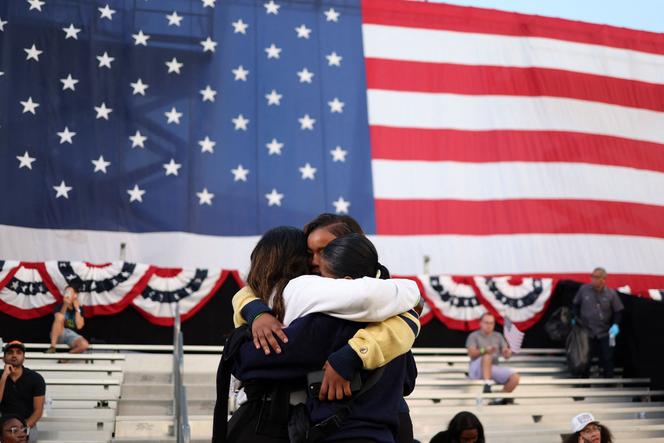


Exemplary and moved, Kamala Harris gifted Donald Trump what he had deprived Joe Biden four years earlier: admission of defeat. On Wednesday, November 6, the Democratic candidate addressed her supporters gathered at Howard University in Washington to acknowledge the result of the presidential election.
"That principle, as much as any other, distinguishes democracy from monarchy or tyranny," she declared. Having spoken with the victor, the vice president pledged to assist him during the transition. She promised that "the light of America's promise will always burn bright as long as we never give up, and as long as we keep fighting." Despite the scale of her defeat, there was no trace of regret, only gratitude for the unwavering support of her heartbroken campaign volunteers. "I'm so proud of the race we ran. And the way we ran it."
Her campaign manager, Jen O'Malley Dillon, had used a similar tone in a thank-you note to Harris staffers, writing "You stared down unprecedented headwinds and obstacles that were largely out of our control." Then came the big denial. "We knew this would be a margin of error race, and it was..." No. It was a rout. There was no distance, no self-criticism on the strategy followed. Perhaps it just wasn't the right time.
For months, a powerful confirmation bias dominated the Democratic camp and most commentators. It was based on the idea that every excess, every incoherence of Trump was proof of his extremism – an extremism the American people could not, in good conscience, accept.
When Harris spoke of the need to reconcile the country, wearied by the chaos of the Trump era, she overlooked another priority for the majority of the population: expressing dissatisfaction with the direction the country had taken. Violent loss of purchasing power, shifting identity markers, the immigration question, rejection of costly and endless military adventures abroad, even by proxy: all these coalesced into a desire for change.

The anatomy of this political disaster will take time on the Democratic side. It begins with a political fact: at 81, Joe Biden should not have been a presidential candidate again. In 2020, he had promised to be a figure of generational transition. He failed to keep that promise, offering no clear explanation for his stubbornness, even though his cognitive decline was becoming increasingly apparent. His unpopularity, too deeply rooted to be undone, offered no hope for a return to favor. But the president was banking on a massive rejection of Trump. The Democratic apparatus, legitimist and fearful, dared not challenge his decision.
You have 74.44% of this article left to read. The rest is for subscribers only.
